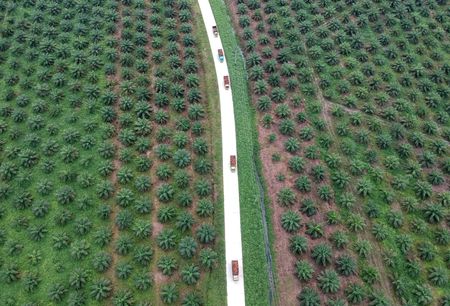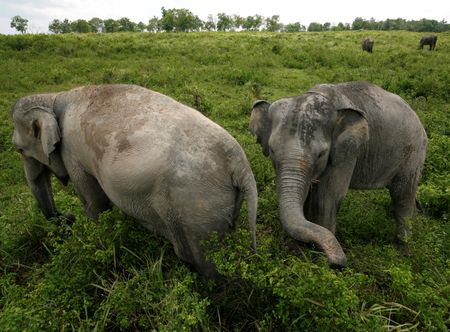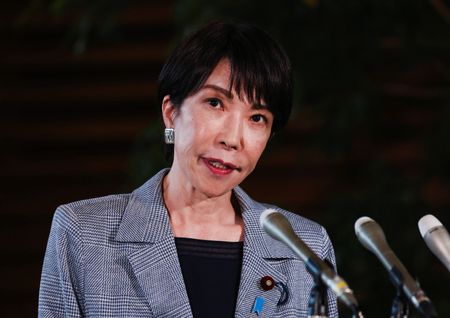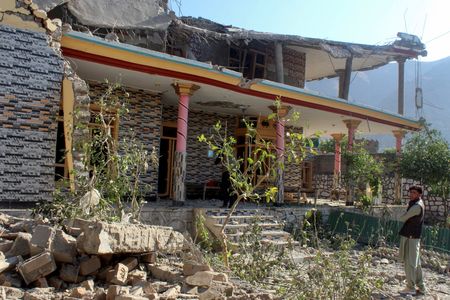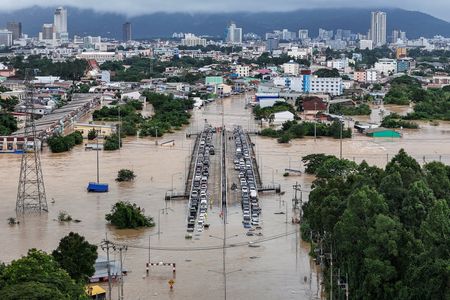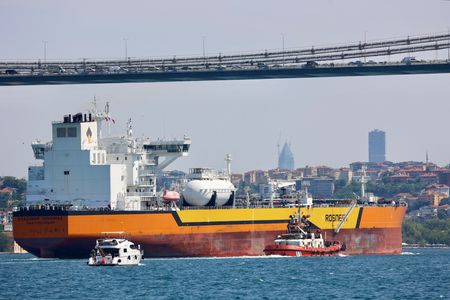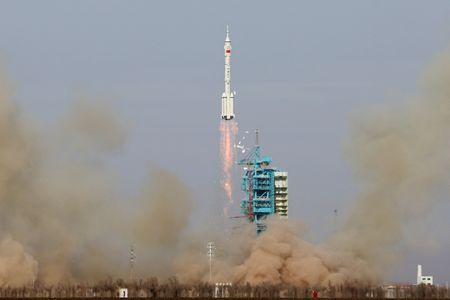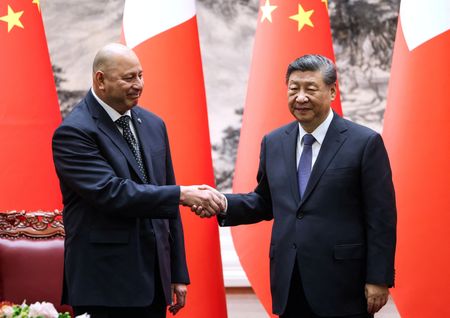JAKARTA (Reuters) -Indonesia has sent reinforcements to a National Park on Sumatra island after a forestry task force command post was destroyed in response to palm oil plantation seizures, the Forestry Ministry said on Tuesday.
President Prabowo Subianto’s forestry task force, which includes military personnel and state prosecutors, has this year launched a crackdown on palm oil plantations they say have been running illegally in forest areas, an operation the palm oil industry says could disrupt global supplies.
“This reinforcement aims to re-secure the tactical command post, prevent further damage, and ensure that the operation to restore order and restore the ecosystem continues to run smoothly,” the ministry said in a statement.
An additional 30 soldiers and 20 forestry police personnel have been deployed to Tesso Nilo National Park in Indonesia’s Riau province, the ministry said, to intensify patrols, guard areas prone to encroachment and monitor guard posts.
ENDANGERED SUMATRAN ELEPHANT
The 83,000-hectare (205,000-acre) National Park is home to the critically endangered Sumatran elephant and has faced years of encroachment, the government said.
The ministry said the task force had seized 4,700 hectares of illegal palm oil in the Tesso Nilo National Park area, dismantled access to the plantations, and demolished buildings related to the illegal oil palm operation in the area.
“Our enforcement operations in Tesso Nilo are designed to break the chain of business that is destroying the area, not to sacrifice the people. Our focus is on landowners, financiers, and heavy equipment operators who trade in state forest areas,” said senior Forestry Ministry official Dwi Januarto Nugroho.
Thousands of residents in Indonesia’s Riau province palm oil belt protested last week against the takeover of their plantations by the government task force trying to restore the ecosystem in an 8,000-hectare area inside the park.
Across the archipelago, around 3.7 million hectares (9.1 million acres) of plantations have been seized, with nearly half transferred to the nascent state-run firm Agrinas Palma Nusantara, transforming it into the world’s largest palm oil company by land size.
(Reporting by Bernadette Christina, editing by Ed Osmond)

